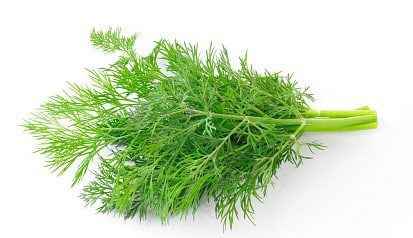

Dogs with a dill allergy may experience itchy skin, inflammation of the skin, swelling of the face, and/or vomiting. They may also experience sneezing, coughing, and/or difficulty breathing.
Dogs with a dill allergy are typically suffering from an allergic reaction to an ingredient or chemical found in the dill. The allergen may be a protein or an oil contained within the dill which causes the body to produce histamines and other inflammatory compounds in an effort to protect the body from what it perceives to be a dangerous substance. As a result of this reaction, the body reacts by producing the previously mentioned symptoms.
To diagnose the dill allergy in dogs, a veterinarian can conduct an allergy test such as a skin prick test or a serum test which measure the pet’s antibody levels to determine which allergen is causing the reaction. The veterinarian will then likely recommend removing dill from the pet’s environment and providing antihistamines if necessary.
This allergy can be quite serious when left untreated due to the respiratory symptoms, such as sneezing, coughing, and difficulty breathing. These symptoms can lead to further complications such as anaphylaxis, which can be fatal. The mortality rate of an untreated dill allergy is low, however, it is still important to take the necessary precautions to avoid any life-threatening reactions.
The treatment of a dill allergy in dogs typically involves a combination of medications, environmental modifications, and diet management. Antihistamines may be used to reduce itching, inflammation, and swelling. Corticosteroids may be prescribed to improve respiratory symptoms and anti-inflammatory diets may be recommended to reduce any further allergen exposure. In some cases, Immunotherapy may be used to reduce allergic sensitivities.
The main prevention method for dogs with a dill allergy is to avoid exposure to the allergen. This includes not feeding the dog foods that contain dill or other plants in the same family, such as fennel, caraway, and cumin. Other prevention methods may include avoiding brushing or bathing the dog with products that contain dill or dill extracts. Additionally, it is important to regularly groom the dog and remove any environmental agents that could cause a reaction, such as pollen.
Dog allergies are typically not contagious and cannot be spread from one dog to another. However, due to the close contact that dogs have with humans, a dog allergen may trigger an allergic reaction or asthma attack in some humans. So, while not contagious, a dog allergy can still affect humans.
Home remedies to manage a dill allergy in dogs includes avoiding dill or any other herbs, feeding a homemade diet with a limited number of ingredients that do not contain dill, and providing omega-3 fatty acids, which have anti-inflammatory properties.
While these dog allergy remedies may provide relief from dill allergies, it is highly recommended to speak with your veterinarian before taking any action.
Dogs that are particularly prone to dill allergy include various breeds of terriers, including the Yorkshire terrier, as well as the Schnauzer, Irish Setter, and Chow Chow. Dog breeds such as the Poodle, Labrador Retriever, and Golden Retriever may also be vulnerable to symptoms of dill allergy. Symptoms of dill allergy are usually exhibited through skin irritation and rashes, and may also include itchy eyes, runny nose, sneezing, and coughing.
Have you ever seen your pup experience a dill allergy? How did they respond? How did you feel, and what did you do to manage the situation?
It can be a worrying experience to witness your furry friend suffer from allergies. Whether you were able to care for the allergy yourself or had the help of a veterinarian, you should be proud of the care you provided. Having a pet is a lot of work and you should be commended for being a responsible and attentive pet parent. We wish your pup the best and hope that they remain healthy and symptom-free.